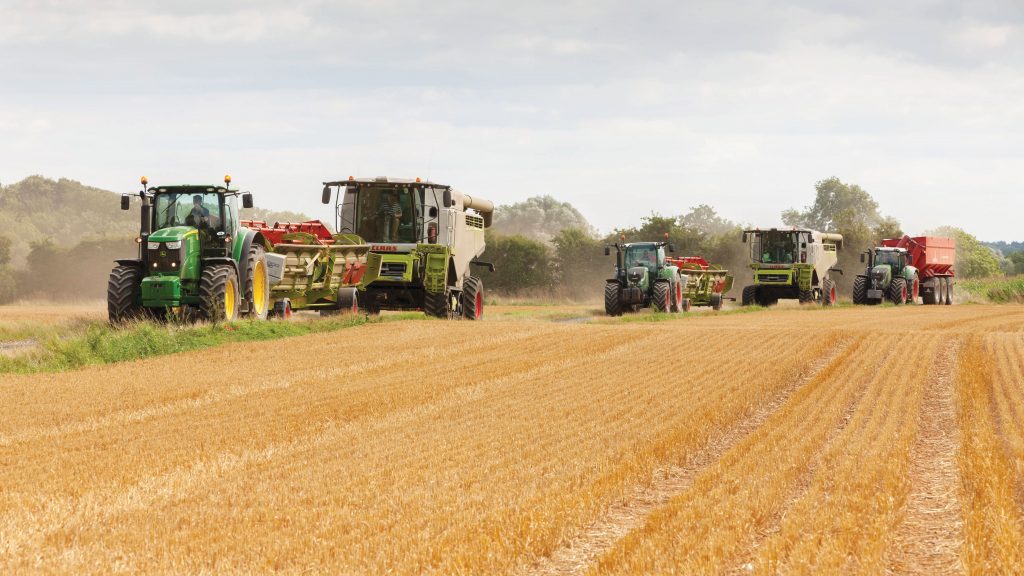Tips for success with harvest student recruitment

Employing a student at harvest can bring benefits all round. But taking on the right person and being thorough with paperwork and preparation is essential. Charlie Taverner gets some tips
James Mayes manages Sentry’s farms in Bedfordshire and Hertfordshire and was a finalist in last year’s Farmers Weekly arable farmer of the year awards.
He has overseen the company’s recruitment of harvest students and thinks the first step should be starting your search early.
“The best students, I feel, are the most organised and are probably looking for their [summer] jobs in December, January or February,” he says. “We want our managers to be at the front of the queue.
“By doing that early in the season we are not getting ourselves exposed to people who decide at the eleventh hour that they want to do a placement.”
Having the right attitude is as important to Mr Mayes as the typical checklist items of driving licence, good vehicle handling and a decent standard of workmanship.
“We want people with initiative and a willingness to make a success of themselves. “First impressions count. If it was me turning up for a farm job I would want to look smart.”
Initial interview
In the initial interviews farmers can set the scene for a mutually beneficial experience, he says.
“If you can, get them to look round the farm and meet the full-time staff and show them the machinery they are likely to use. You can usually see from early on [if they are] interested.
“You should have a clear description of what you are able to offer that individual. If you say you want them to drive a combine all season you have to deliver on that.
“If you can clearly describe what you are offering them, then that person is starting with a full understanding.”
The administrative hurdles with harvest students should not be too different to those for full-time staff.
When it comes to payroll, students are treated like any other employee. They need to bring a P45 form or fill in a new starter declaration.
Harvest often means round-the-clock working, but EU law limits workers to 48-hour weeks. So the student would have to sign an opt-out agreement.
If the student is from overseas, it is the responsibility of the employer to check their right to work in the UK and record the fact that they checked. Get this wrong and the employer could face a maximum fine of £2,000 and maybe a prison sentence.
Greg Jones, associate at solicitor Birketts, says getting a clear, comprehensive contract in place should be the essential first step.
“Not only does the law require you to get one in place, setting out rights and entitlements, it also gives you some certainty if and when you fall out with them.
“If you do not have anything in writing and an employee turns round and says: ‘You guaranteed me 30 hours a week and you only paid me for 20,’ you have a problem.”
Occupancy agreement
He also recommends drawing up a separate occupancy agreement for any accommodation offered with the summer job.
“The agreement would make clear that when their employment time ends, their entitlement to live on the premises ends. You should also run it past the accountant as to whether or not it is a taxable benefit.”
Mr Jones also suggests it is good practice to take a copy of the employee’s driving licence, sign, date and file it.
Extra care should also be taken when assessing health and safety risks for summer staff. “None of these things will be new to employers, but the risks are higher for seasonal workers because they are not people you necessarily know and trust and have a history with. You might be quite relaxed with your permanent staff.”
David Leavesley of NFU Mutual Risk Management Services says farmers can also minimise risks as soon as students start work by training them how to work safely.
“To ensure you do not forget to mention a particular issue, have a documented induction procedure that sets out all the salient information and get students to sign it so you have evidence that the training has been given.
“Check that the training and information is provided in a format the students can understand. And, once the students start work, ensure they are closely supervised at all times.
“Finally, assume nothing. Students may not have experience or understanding of your farming operations, so explain everything about the tasks they will be doing and the safety procedures they must adhere to – even if it seems blindingly obvious to you.”
Book tickets for the Cereals event
Top tips for harvest student recruitment
- Greg Jones, Birketts – Make sure you get off on the right foot by getting the contract in place. The law requires it and hopefully it will give some clarity.
- Sally Ashwell, Farmplan – Students are treated like any other employee on the payroll. You also have to check they are eligible to work in this country.
- James Mayes, Sentry Farming – Be organised in good time with your recruitment and have a clear description of what you are able to offer an individual.
- David Leavesley, NFU Mutual – Assume nothing. Students may not have experience or understanding of your farming operations so explain everything abut the tasks they will be doing.
Keep up to date with all the news
